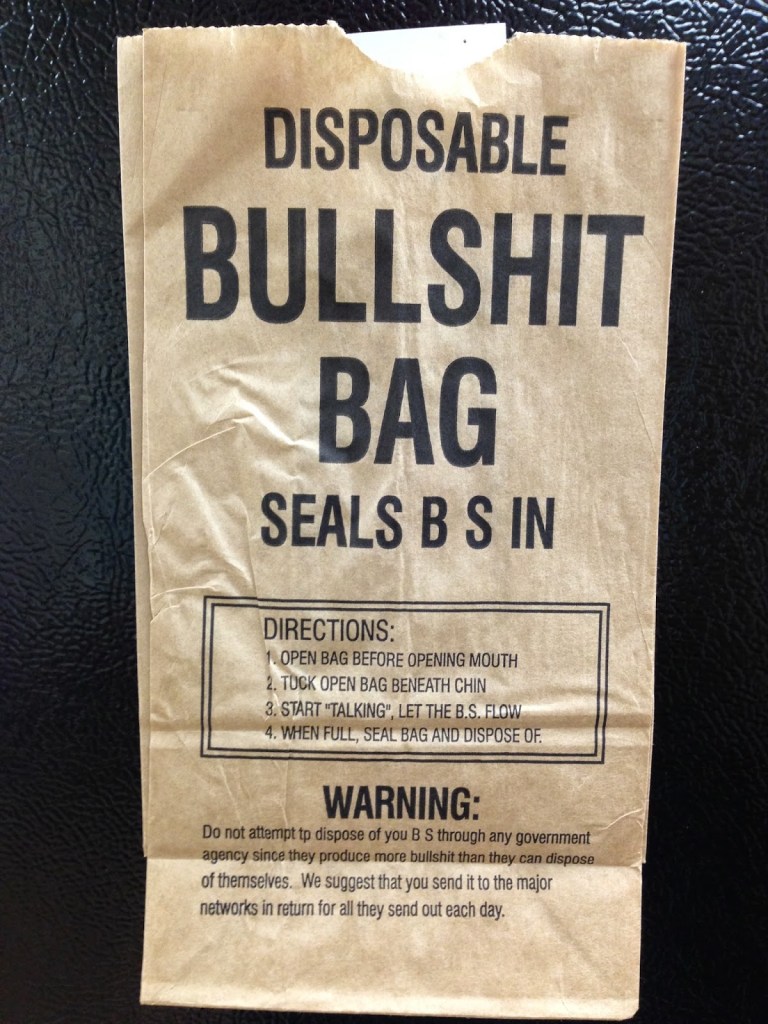I’m astonished by the fact that people still believe the Ol’ Pussy Grabber and that he has any credibility or influence over anyone supporter, opponent, or iNdEpEnDeNt. I have long since trained myself to assume everything he says is a lie. But reporters and everyday Americans continue to give him the benefit of the doubt. What could possibly explain this? One things: social norms. He benefits from his office in spite of his individual behavior. I had to train myself — an act of conscious will and discipline — to stop believing him. Others aren’t willing to engage in the process and still give him the benefit of the doubt because people are hardwired to believe and follow normative behavior.
Let me give an amusing anecdote to help illustrate my point.
Amusing Illustrative Anecdote
When I was a freshman in university, I had lunch with friends at the school cafeteria — well, no duh! who didn’t? One day, I came through the line and sat down at the table with three or four people, and someone asked to borrow some money — this was back in the day when students were still poor and banks didn’t hand out credit cards like ecstasy, in fact, it was before ecstasy. My friend needed some money to buy lunch that day.
Sure, I said, I have some extra cash today — normally I wouldn’t’ve — I got this for free!
Really? one of the girls at the table asked, how so?
The cashier and I are lovers, I said matter-of-factly.
No! she said uncertainly. Really? And she looked from the frumpy 50-ish minimum wage cashier to me — scrawny, scruffy 19 year-old neer-do-well — and back again several times, you know, trying to figure out if it were possible.
Yeah, I said. I do it for the free food.
I waited a couple of beats to let that sink in, as we say nowadays.
No, I’m not, I finally said laughing at my little joke. I just happen to have a little extra today since we were paid last week.
Why do people fall for those kinds of jokes? For it to work as an amusement — at least for me — the story’s got to be just possible enough to plausible, but just implausible enough to be impossible. The person has to wonder whether it is true or not.
Since it is my favorite form of humor — I tell these kinds of stories all the time having mastered the expressionless deadpan delivery long ago — I have a lot of experience with it. And, when someone gets me — and they do — I laugh and laugh and laugh. It’s great fun.
What I’ve noticed is that people are willing to give you the benefit of the doubt. They opt for believing you, even when they’ve been had by me on multiple occasions.
Giving the Ol’ Pussy Grabber the Benefit of the Doubt
It’s the same thing with the Ol’ Pussy Grabber. He’s the most prolific liar in the country if not the world or history of human kind. He has been shirking leadership and responsibility since before being elected. Yet, Gallup reports that a whopping 51% of respondents think of him as a strong and decisive leader. And, literally hundreds of people were calling poison control hotlines to determine whether drinking bleach would be safe! And, of course, we’ve had shortages of hydroxychloroquine for people who need it and people dying from taking whether it is on their own or in misguided drug trials. Now, neither the Ol’ Pussy Grabber or Mother Pence are wearing masks and are actively discouraging people from doing so.
Now, we’ve got a security guard shot dead, a park ranger pushed into a lake, and a man wiping his face on a store clerk’s shirt over social distancing and mask wearing. And, that is decisive leadership?
We’ve go four times the number of known infections and over twice the number of known deaths as any other country, and that’s decisive leadership?
Our Preference for Believing
We all know better. We all know it is bullshit. We know that hydroxychloroquine is not going to work. We know it is unproven. We know that bleach is a deadly poison and not to ingest it. We know we should be wearing masks and that it will help stop the spread of the virus. We know this. Every single one of us knows this. Everyone out protesting lockdowns and stay-at-home orders knows this. So, why did people die from taking hydroxychloroquine, why are people wasting the time of poison control offices, why are people murdering because they’re asked to wear a mask or maintain social distance?
We are hard-wired to believe our senses. If you think about it from an evolutionary standpoint, it makes sense. The hunter-gatherer who dithered and questioned whether the quivering grasses and sound of rushing clawed paws was really a predator, got et, and those genes were not well-represented in subsequent generations. Those that erred on the side of caution and ran for it, lived, and their genes moved on to the next generation.
In a world where things didn’t change rapidly, well, until they did, see the predator example above, you didn’t have to do a lot of questioning. It was a world where trees remained trees, rocks didn’t morph and change, animals didn’t suddenly change species. And, if you heard someone speaking, you knew it was them speaking.
Our tribal existence was built upon trust of one another because of our close interdependence. We lived close to the bone. Death came swiftly. Starvation, disease, and predation were all close at hand. Without trust, then as now, we cannot have a functioning society.
Science Fact: Belief over Disbelief
Of course there is scientific evidence that we opt for believing rather than critically consider whatever is being said. There have been a number of studies that evaluated the areas of the brain that are activated when participants were confronted with statements that they were to rate as “belief,” “disbelief,” or “undecidable” — what can you say, these were pointy-headed science types. Typically, these studies use statements that most people would recognize as true and untrue, and occasionally use statements that are ambiguous. Most offer the awkwardly worded, “undecidable,” option but don’t expect it to be used.
This particular study compared very Christian types with very atheist types. They used statements most Christians would think were true and false (“The Biblical God exists” versus “The Biblical God is a myth.”) and statements that everybody else would most likely think is true and false (“Superman is a fictional character” versus “Superman really exists in the real world”). What they found is that (a) we use different parts of our brain when processing statements we believe versus statements we don’t believe; (b) there is overlap between the two sets; and (c) more area of the brain is required to process statements that we don’t believe.
When you consider that our brain evolved to economize on energy use — our brains use 20% of our total energy — it is no wonder we are inclined to accept most statements as being true unless there is a strong motivation to disbelieve them.
The casual low-information dissociated independent voter and non-voter alike hear the Ol’ Pussy Grabber say sumpthin plainly stupid and false, like drink bleach to cure COVID-19 and they struggle to discount it. In part because we are inclined to believe what we hear and in part because of the office.
This also offers biological support for motivated reasoning and confirmation bias. We are “naturally” inclined to look for information that supports our point-of-view and opinions. It is literally easier than thinking.
Image Attribution
This image was found using a Creative Commons search. It was found on Flickr. It was made by David Jackmanson. It is licensed as Attribution 2.0 Generic.








So good to hear from you!
LikeLiked by 1 person
Hope you are doing okay, Calico Jack
LikeLiked by 1 person
Howdy Margie!
Bless you for asking. I’m sorry it’s taken me so long to respond. As I’ve written in my latest post, it has been a busy three months and emotionally draining three months. I should’ve updated the blog, but honestly, I just didn’t have it in me. I hope you understand.
Huzzah!
Jack
LikeLiked by 1 person
Reblogged this on cabbagesandkings524 and commented:
Calico Jack – To believe or not believe?
LikeLiked by 1 person
Here’s another view. Imagine there is a speaker who says mostly untrue and (worse, for critical thinking) partly true, things. It might be difficult initially to practice the presumption that what he says is untrue, but once the habit is formed it saves the mental work of trying to analyze each statement, especially when they come in a flood of comments and Tweets, each one reported as actual news. So, both giving him the benefit of the doubt and giving him no credibility are efficient strategies. The catch for the non-believer is that the speaker does occasionally (even if inadvertently) reveal a true thing and those may be the most important clues to his real intentions and schemes. Sorting out those few real nuggets of data from the manure pile is real work, and part of the work that our news media, even the best of them, are generally failing to do.
LikeLiked by 1 person